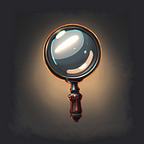Quote Origin: Time Flies; You Cannot; They Pass At Such Irregular Intervals
Mr X of The Royal Magazine? Boys’ Life Magazine? Anonymous?
Question for Quote Investigator: A linguistic puzzle asks the reader to correctly punctuate the following sentence:
Time flies you cannot they pass at such irregular intervals.
A similar puzzle asks the reader to punctuate this sentence:
Time flies you cannot they go too quickly.
Most readers are familiar with the idiom “time flies” which highlights the perception that time passes quickly, but that semantic interpretation is misleading when analyzing the sentences above. Here is one possible solution for each sentence:
Time flies; you cannot; they pass at such irregular intervals.
Time flies; you cannot; they go too quickly.
The word “flies” corresponds to the insects. The word “time” refers to measuring the speed of the insects. Would you please explore the history of this puzzle?
Reply from Quote Investigator: In January 1903 “The Royal Magazine” in London, England published the first sentence, and asked readers to interpret it. The puzzle was posed by the pseudonymous “Mr. X” who also asked readers to supply more brain-twisters. Boldface added to excerpts by QI:¹
Time flies you cannot they pass at such irregular intervals.
is a very clever catch sentence.
Mr. X is making a collection of puzzling sentences, and will be glad to hear from readers who know of any good ones.
The following month the magazine printed the answer. The interpretation of the phrase “time flies” diverged significantly from its traditional meaning:²
Time flies; you cannot; they pass at such irregular intervals.
(“Time,” of course, being used in the sense of timing a race, and “flies” being the well-known summer insects.)
Based on these citations, the puzzle was popularized by Mr. X. It is possible that Mr. X created this brainteaser. Alternatively, this item was already in circulation and the creator remains anonymous.
Below are additional selected citations in chronological order.
In 1907 “Saffron Walden Weekly News” of Saffron Walden, England printed a column listing several puzzles including the following two items:³
The trying sentence “that that is is that that is not is not is not that it it is”, is cleared thus by proper punctuation: That that is, is; that that is not, is not. Is not that it? It is.
It is difficult at first sight to grasp the meaning of this apparently simple sentence: “Time flies you cannot they pass at such irregular intervals.” How does it read?
Answer — “Time flies you cannot, they pass at such irregular intervals.”
In 1908 the “St. Louis Globe-Democrat” of St. Louis, Missouri printed an instance that was very similar to the 1907 instance above.⁴
In 1910 “The Kennebec Journal” of Augusta, Maine printed a variant puzzle using the phrase “pass too quickly”:⁵
The gentleman was not talking about the passing of time, but about the timing of flies. A semicolon after cannot makes the sentence clear.
Time flies you cannot; they pass too quickly.
In 1930 “Boys’ Life” magazine transformed the puzzle into a joke:⁶
SCOUTMASTER: Time flies.
SMART TENDERFOOT: You can’t. They go too fast.
This linguistic puzzle was discovered when QI was investigating another statement: “Time flies like an arrow; fruit flies like a banana”. Both statements involve atypical interpretations. A separate article about the “fruit fly” expression is available on the Quote Investigator website located here.
In conclusion, the earliest match for this puzzle appeared in 1903 within the pages of a London magazine. The pseudonymous “Mr. X” printed the puzzle which he may have created. It is also possible that “Mr. X” was simply reprinting an existing puzzle with an unknown creator.
Image Notes: Illustration of a stopwatch from Stanos at Unsplash. The image has been retouched and cropped
Acknowledgement: This topic was encountered by QI during the research on the quip “Time flies like an arrow; fruit flies like a banana”. Understanding the ambiguity of the phrase “time flies” is helpful when examining both of these topics.
[1] 1903 January, The Royal Magazine, Volume 9, Number 51, Mr. X — His Pages, Cryptic Sentences, Quote Page 299, Column 1, C. Arthur Pearson Ltd., London, England. (Google Books Full View) link
[2] 1903 February, The Royal Magazine, Volume 9, Number 52, Mr. X — His Pages, Notes About Puzzles in Previous Issues of The Royal, Cryptic Sentences, Quote Page 391, C. Arthur Pearson Ltd., London, England. (Google Books Full View) link
[3] 1907 December 27, Saffron Walden Weekly News, Sage and Onions, Quote Page 6, Column 5, Saffron Walden, Essex, England. (Newspapers_com)
[4] 1908 December 20, St. Louis Globe-Democrat, Section: Magazine, Puzzles, Riddles and Problems for Christmas Parties, Quote Page 7, Column 3, St. Louis, Missouri. (Newspapers_com)
[5] 1910 July 13, The Kennebec Journal, Children’s Department: A Punctuation Game, Quote Page 11, Column 5, Augusta, Maine. (Newspapers_com)
[6] 1930 February, Boys’ Life, Think and Grin, Edited by Francis J. Rigney, Quote Page 48, Column 3, Published by Boy Scouts of America, New York. (Google Books Full View) link
